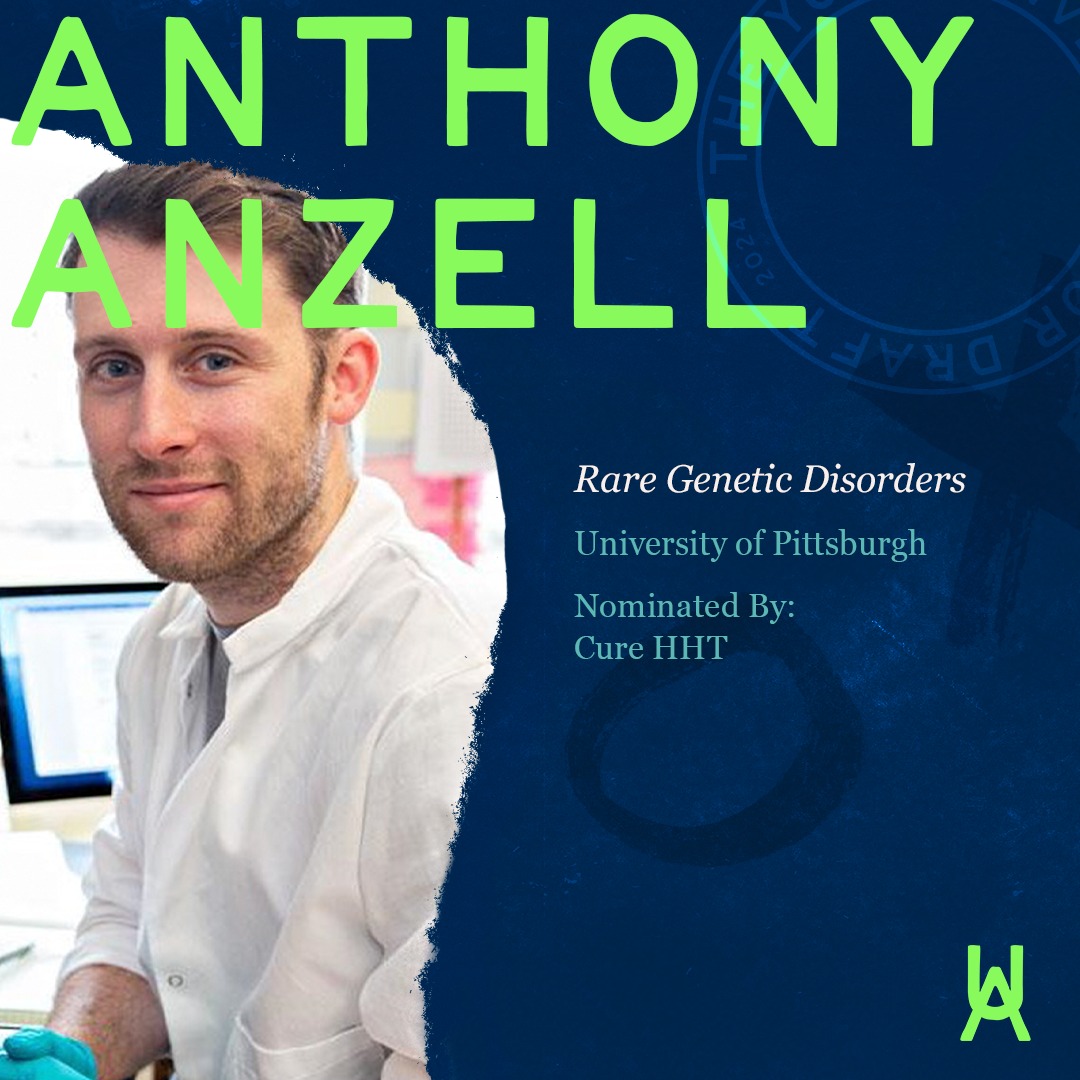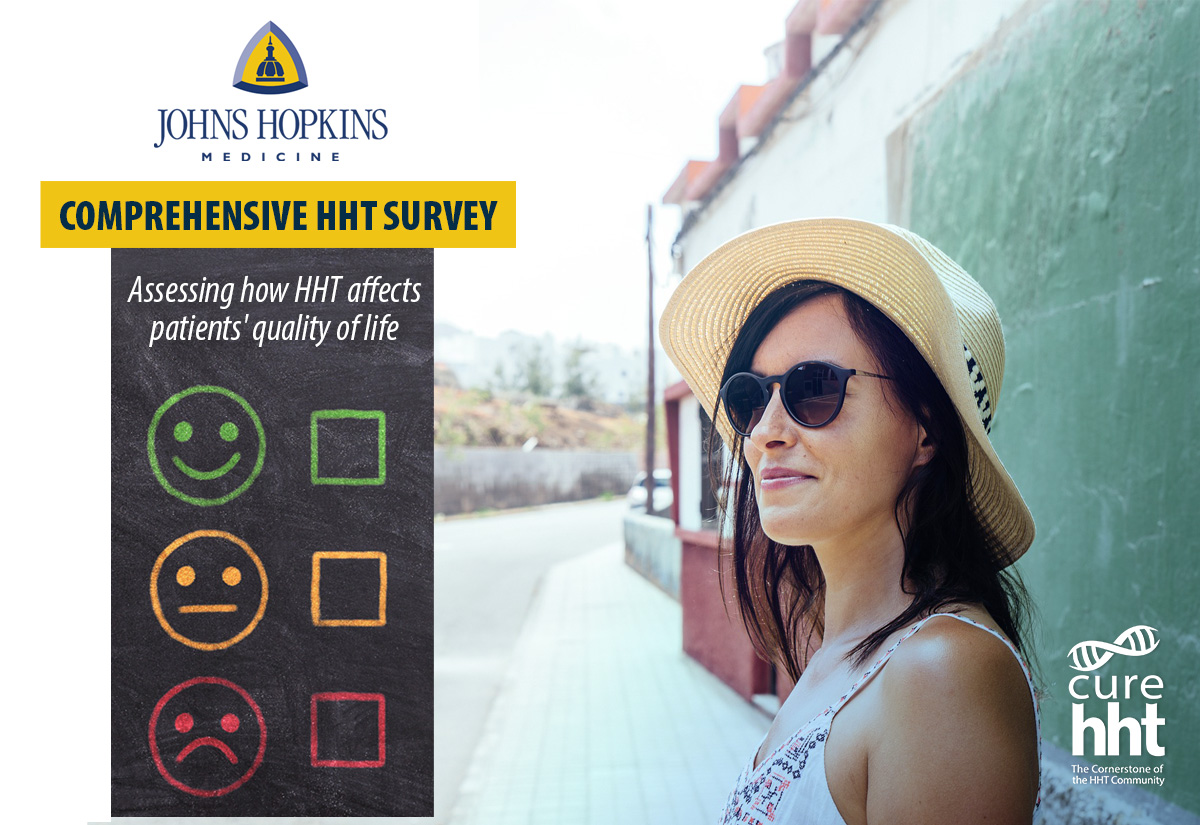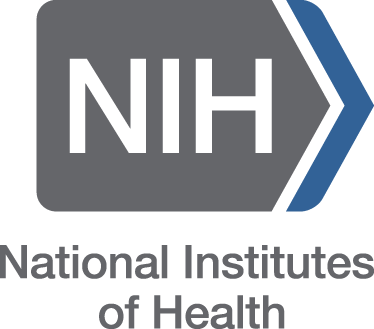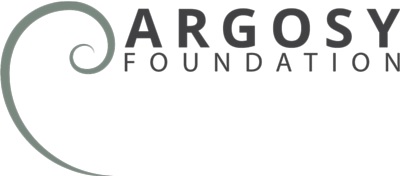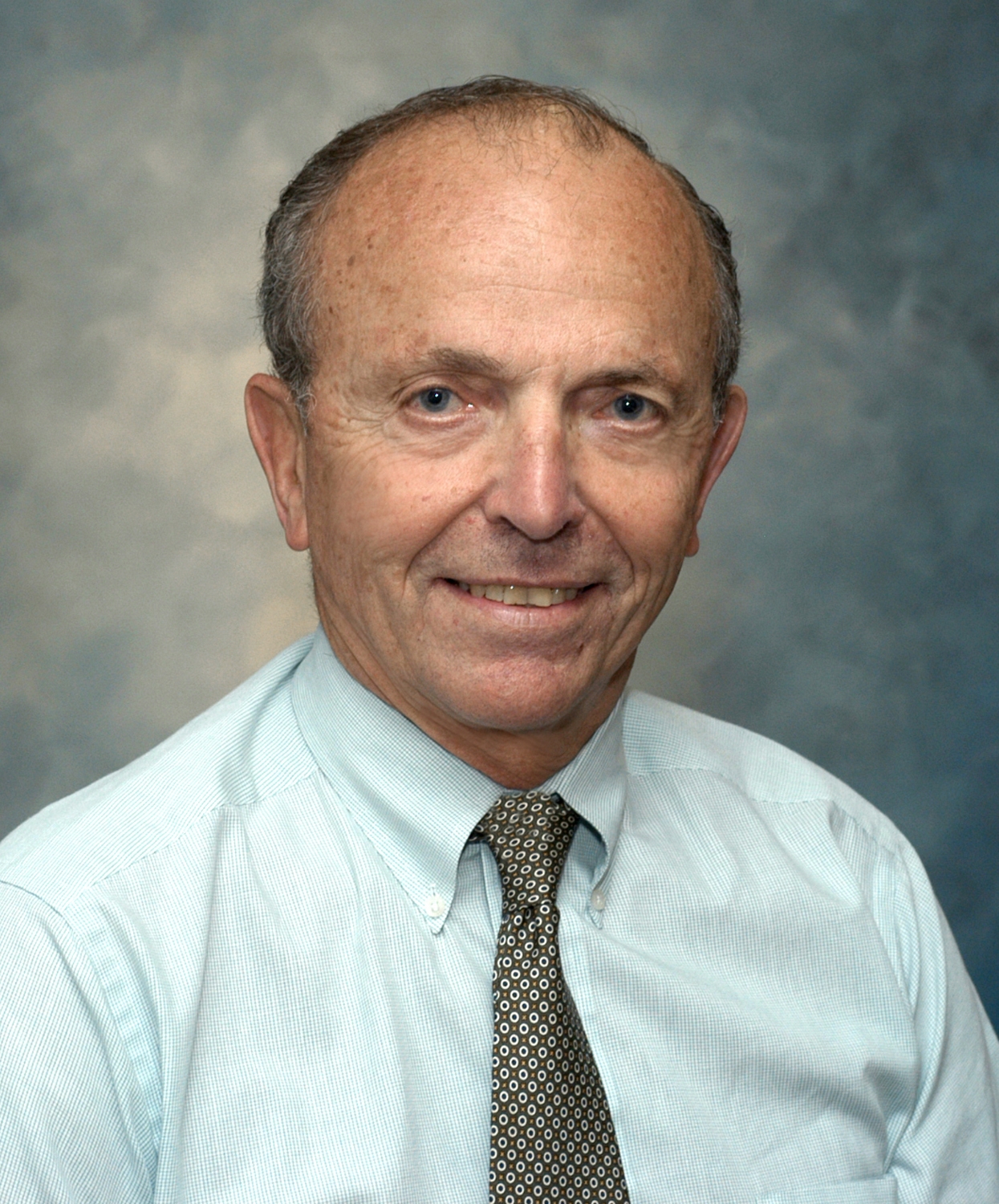Supported Research
Cure HHT: Driving Impact and Innovation in HHT Research & Treatment
The Impact of Our Work
$0
Funds Granted to Cure HHT$0
Cure HHT's Investments to HHT Researchers$0
Investment in Clinical Trials$0
Funds Secured Through PartnershipsResearch Spotlight
Click on a topic below to uncover our latest research discoveries!
Advancing HHT Research
We are the catalyst for driving advancements in HHT research.
Through strategic grants, direct funding, and building industry partnerships, we have significantly grown the amount of research taking place within our disease over the years and have empowered groundbreaking discoveries that ultimately improve the lives of patients.
Our efforts to over the years grow the research community focused on HHT and advance our understanding of the underlying mechanisms of this disease, have allowed us to reach a point where yesterday’s dreams are becoming today’s accomplishments.

Advancing HHT Research
We are the catalyst for driving advancements in HHT research.
Through strategic grants, direct funding, and building industry partnerships, we have significantly grown the amount of research taking place within our disease over the years and have empowered groundbreaking discoveries that ultimately improve the lives of patients.
Our efforts to over the years grow the research community focused on HHT and advance our understanding of the underlying mechanisms of this disease, have allowed us to reach a point where yesterday’s dreams are becoming today’s accomplishments.

Our Mission
To be at the forefront of accelerating progress in understanding, treating, and finding a cure for HHT.
We aim to:

Recipients of the Young Investigator Awards at the 2022 14th International HHT Scientific Conference, Portugal.

Recipients of the Young Investigator Awards at the 2022 14th International HHT Scientific Conference, Portugal.
Our Mission
To be at the forefront of accelerating progress in understanding, treating, and finding a cure for HHT.
We aim to:
Cure HHT Research Network Hub
The Cure HHT Research Network Hub is a pivotal initiative funded by Cure HHT, fostering community and collaboration to accelerate discoveries by building a robust repository of knowledge.
This platform connects HHT researchers and clinicians worldwide, providing access to research publications, real-time news and announcements, continuing medical education, and biobank samples. The hub supports innovative studies and sharing insights to discover effective treatments and, ultimately, a cure for HHT.
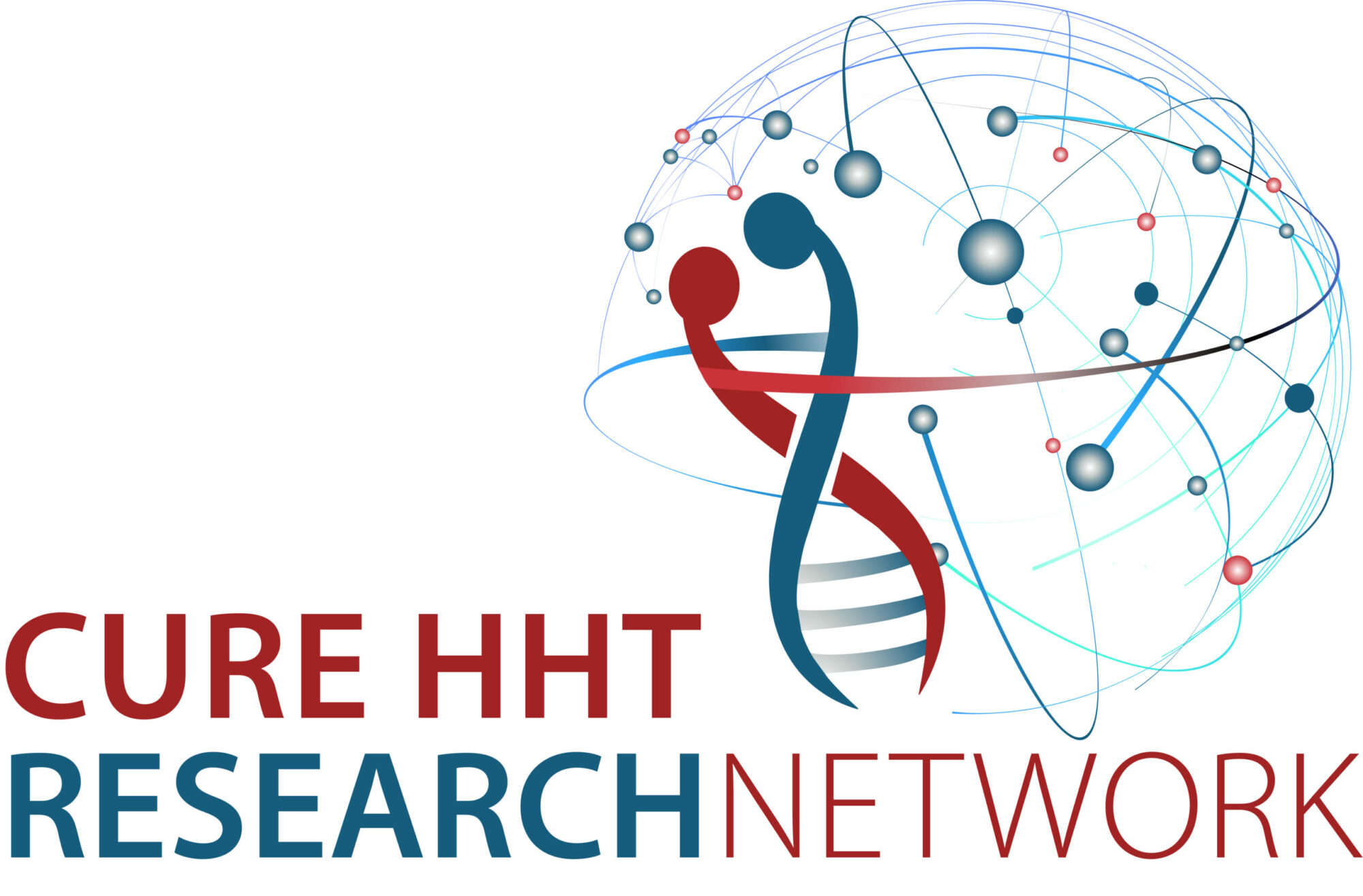
*For researchers and clinicians only.
Cure HHT Research Network Hub
The Cure HHT Research Network Hub is a pivotal initiative funded by Cure HHT, fostering community and collaboration to accelerate discoveries by building a robust repository of knowledge.
This platform connects HHT researchers and clinicians worldwide, providing access to research publications, real-time news and announcements, continuing medical education, and biobank samples. The hub supports innovative studies and sharing insights to discover effective treatments and, ultimately, a cure for HHT.

*For researchers and clinicians only.
Powering HHT Research Through Partnerships
Cure HHT's research initiatives are significantly enhanced by our the partnerships we have formed with leading academic institutions, government agencies, foundations, and industry leaders. Each collaboration brings unique strengths to our mission:
Foundations and Non-Profits, including the Chan Zuckerberg Initiative and Argosy Foundation, boost our research funding, allowing us to pursue ambitious projects.

Academic Partnerships drive innovation and discovery in HHT research, enriching the projects we fund.

Government Agencies like the NIH, DoD, and CDC provide essential support, expanding the scope and impact of our research.

Industry Collaborations with companies like Diagonal Therapeutics, Medtronic, Nasaclip, and more introduce cutting-edge technology and treatments into our research efforts.

These strategic alliances not only diversify our research funding but also ensure that our supported projects have a broader impact, accelerating progress toward understanding, treating, and ultimately curing HHT.
Supporting Research Across All Fronts
Cure HHT advances research across various areas.
Click on the categories below to explore the full list of funding. Each category represents a step forward in our mission to transform lives and bring hope to those affected by HHT.
Acknowledgments
We extend our heartfelt thanks to the broad community that supports HHT research. Your contributions, from groundbreaking scientific discoveries to generous donations, are the driving force behind our progress.
Each study funded, every piece of new knowledge gained, and the continuous improvement in patient care wouldn't be possible without your unwavering support. Thank you for being an integral part of this journey toward understanding, treating, and ultimately curing HHT.
Calling All Researchers
If you are a HHT researcher, clinician or fellow, learn more about our awards and grants designed to help you further your research and career in the HHT field.
How to Get Involved - information for researchers interested in applying for funding and for patients looking to participate in clinical trials.


 By replicating blood vessel abnormalities seen in HHT right in the lab, this groundbreaking approach revolutionizes the way we study and treat the disease.
By replicating blood vessel abnormalities seen in HHT right in the lab, this groundbreaking approach revolutionizes the way we study and treat the disease.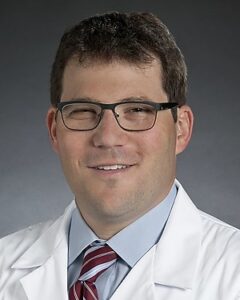


 Fast-Tracking Treatments: Dr. Spiekerkoetter's groundbreaking research leverages the potential of existing drugs to treat HHT and PAH. By repurposing medications such as FK506 (tacrolimus) and tyrosine kinase inhibitors, her work aims to quickly transition from laboratory studies to clinical trials.
Fast-Tracking Treatments: Dr. Spiekerkoetter's groundbreaking research leverages the potential of existing drugs to treat HHT and PAH. By repurposing medications such as FK506 (tacrolimus) and tyrosine kinase inhibitors, her work aims to quickly transition from laboratory studies to clinical trials.